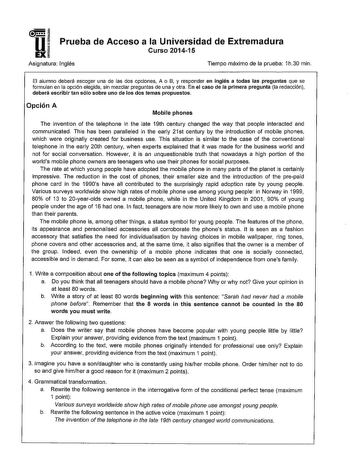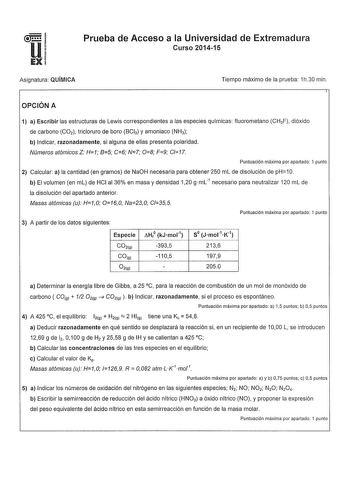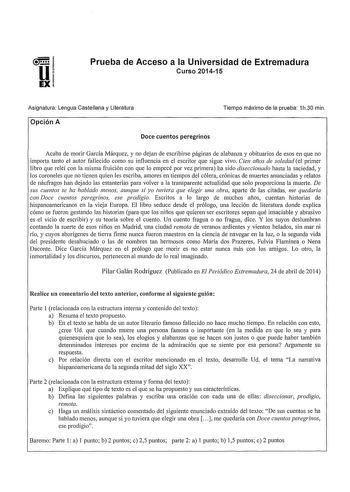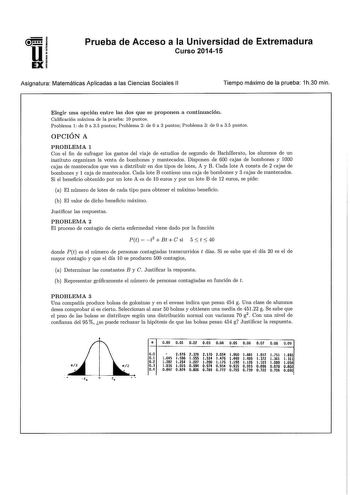Examen de Inglés de Extremadura (PAU de 2015)

| Comunidad Autónoma | Extremadura |
|---|---|
| Asignatura | Inglés |
| Convocatoria | Extraordinaria de 2015 |
| Fase | General |
Temas mencionados new_releases
The New York Times
The New York Times (sometimes abbreviated NYT and The Times) is an American daily newspaper, founded and continuously published in New York City since September 18, 1851, by The New York Times Company. The New York Times has won 119 Pulitzer Prizes, more than any other newspaper.
Fuente: wikipedia.orgThe Washington Post
The Washington Post is an American daily newspaper. It is the most widely circulated newspaper published in Washington, D.C., and was founded on December 6, 1877, making it the area's oldest extant newspaper. Its current slogan is "Democracy Dies in Darkness".
Fuente: wikipedia.org
New York Daily News
The New York Daily News, officially titled Daily News, is an American newspaper based in New York City. It is the fourth-most widely circulated daily newspaper in the United States. It was founded in 1919, and was the first U.S. daily printed in tabloid format. It is owned by Mortimer Zuckerman, and is headquartered at 4 New York Plaza in Lower Manhattan.
Fuente: wikipedia.orgThe Unquestionable Truth (Part 1)
The Unquestionable Truth (Part 1) is an EP by the American nu metal band Limp Bizkit. Released in 2005, it is the first release by the band to feature guitarist Wes Borland since he rejoined the group. He had left the band in 2001, and their previous album Results May Vary, was recorded without him. Drummer John Otto was absent for much of the album, and Sammy Siegler took over drumming duties for the band.
Fuente: wikipedia.orgConditional perfect
The conditional perfect is a grammatical construction that combines the conditional mood with perfect aspect. A typical example is the English would have written. The conditional perfect is used to refer to a hypothetical, usually counterfactual, event or circumstance placed in the past, contingent on some other circumstance (again normally counterfactual, and also usually placed in the past). Like the present conditional (a form like would write), the conditional perfect typically appears in the apodosis (the main clause, expressing the consequent) in a conditional sentence.
Fuente: wikipedia.org


